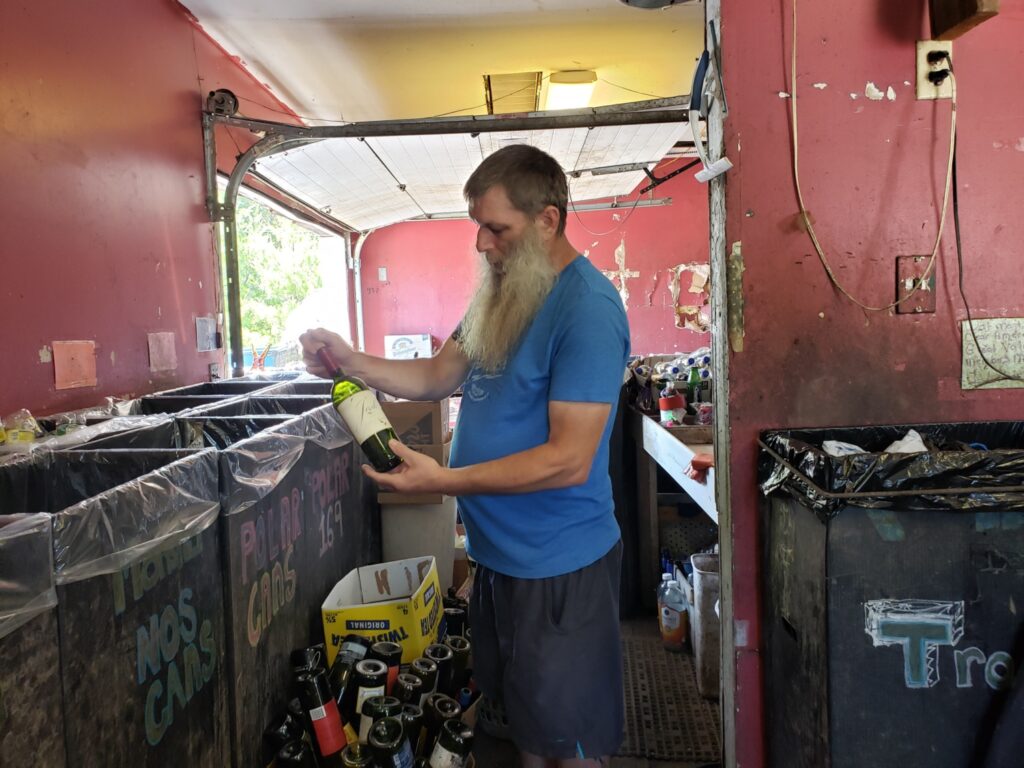Capital Chatter: Is OFIR a hate group?
Published 8:00 am Thursday, September 13, 2018

- Capital Chatter: Dangerous times for the Oregon Legislature
Oregonians for Immigration Reform and gubernatorial candidate Knute Buehler have been in the news together this week. Gov. Kate Brown‘s campaign initially claimed that OFIR, which it called a “hate group,” had endorsed Buehler.
Buehler says that isn’t so. From what I’ve seen, he is right, at least technically. However, the OFIR leadership definitely supports his quest, although Buehler said he would reject an endorsement.
Six years ago, OFIR did endorse Buehler when he ran against Brown for secretary of state. An October 2012 statement on the organization’s webpage said, “OFIR recommends Knute Buehler for Secretary of State.”
Why does this matter? Because the Southern Poverty Law Center, which tracks hate groups throughout the U.S., classifies OFIR as a hate group.
On its website, the SPLC says: “The Southern Poverty Law Center defines a hate group as an organization that — based on its official statements or principles, the statements of its leaders, or its activities – has beliefs or practices that attack or malign an entire class of people, typically for their immutable characteristics.”
It goes on to say, “The FBI uses similar criteria in its definition of a hate crime: ‘[A] criminal offense against a person or property motivated in whole or in part by an offender’s bias against a race, religion, disability, sexual orientation, ethnicity, gender, or gender identity.'”
There should be no doubt that groups such as the Ku Klux Klan, which the SPLC says still operates in Oregon, espouse hate. The SPLC lists 18 hate groups in Oregon, including ones it says are anti-Muslim, neo-Nazi, anti-immigrant (OFIR), black nationalist, racist skinhead and white nationalist.
Still, one-size-fits-all labels trouble me. Thus, several questions come to mind.
Is it hateful in itself to label an organization as a “hate group”?
In a press release, the Brown campaign said, “OFIR is a Southern Poverty Law Center-designated hate group with ties to a prominent white-nationalist eugenics advocate.”
Is it appropriate for the media to describe it as a hate group, attributing that label to the SPLC? Should we in the media be more specific, such as “an organization accused of having connections with …” ? Or should we forget the labels and let the readers decide?
OFIR staunchly opposes illegal immigration. It has fought state legislation that many people would consider pro-immigrant. Does that make OFIR anti-immigrant, as the SPLC and others say? On the other hand, is it disingenuous to describe OFIR simply as a group opposing illegal immigration?
On its website, OFIR describes itself as: “Oregonians for Immigration Reform works to stop illegal immigration as well as reduce legal immigration to a more environmentally, economically and socially sustainable level here in Oregon and across the United States.”
It adds, “OFIR is concerned about the utter disregard for existing United States immigration laws, illegal trafficking of people and drugs across the US border, and the environmental, economic, and societal consequences of mass immigration into the United States.”
OFIR got the initiative on the November ballot to repeal Oregon’s “sanctuary state law.” Buehler has said he would vote for Measure 105. Brown opposes it. Law enforcement across the state are split on it.
My only advice as the campaigns progress is to be cautious about labeling anyone. Labels say as much about the person doing the labeling as they do about the person being labeled.
Speaking of legislators: State lawmakers on the November ballot are in the blackout period, during which they are barred from using state resources to send out constituent newsletters.
I thought you would be interested in what some legislators had to say in newsletters before the blackout began. (I made a few corrections for punctuation, standard capitalization and grammar.)
Rep. Pam Marsh, D-Ashland: “In its simplest form, a legislative proposal, or bill, is nothing more than a good idea designed to address a community problem. You don’t have to be an elected official to recognize the need to implement change. With help from Bella Mannray, my Ashland High School student intern, we’re soliciting your ideas for new legislation.
“Entries for our ‘There Oughta Be a Law Contest’ will be accepted from Sept. 1 through Nov. 1, 2018. At least one entry will be chosen as a winner and submitted as a bill in the 2019 session. From that point on, we’ll keep you apprised of the bill’s progression through the legislative process – and maybe – its transformation into an Oregon law.”
Rep. David Gomberg, D-Otis: He held four town halls on a recent weekend, which he called “face-to-face democracy. You never know what people are going to ask or what they are going to say. It gives an elected official a good sense of what’s on people’s minds.
“Topics raised ranged from supporting the arts to sewage sludge disposal. Questions were asked about housing and homelessness, off-shore drilling, education, job creation, elections and the Electoral College, carbon sequestration, delinquent tax collections, highway and transportation improvements, earthquake preparation and algae blooms.”
Rep. Janeen Sollman, D-Hillsboro: “The PAX Good Behavior Game, widely used by teachers and administrators in the Hillsboro School District, has been a successful tool in lowering office referrals, allowing students to be more engaged in instruction and helping students learn self-regulating skills. Teachers and students both benefit from this positive behavior reinforcement method. I have visited classrooms and seen this in action and it is impressive.”
Sen. Dennis Linthicum , R-Klamath Falls: “Today’s wildfires are the most relevant contributor to fine particulate pollution … . Since the mid-1980s, the total U.S. area burned by wildfires has been increasing, with fires in the Northwest United States accounting for 50-60 percent of that increase, according to a recent report.
“In essence, the environmental policies that were designed in an effort to protect forests are actually responsible for destroying them.”
Rep. Brad Witt , D-Clatskanie, on this month’s Legislative Days at the Capitol: “We will have three days of hearings as we attempt to set an agenda for the next session in January 2019. Among these items will be the constant effort to fund education so that we can fulfill the requirements of the Quality Education Model established exactly two years ago by the Quality Education Commission.
“In addition to funding the QEM, we will also be striving to find solutions to the housing shortage, the shortfalls in both Medicaid and PERS funding, and the continuing efforts to reduce carbon emissions.”
Sen. Alan Olsen, R-Canby, who calls his newsletter “The Capitol Babbler”: “Most people are unaware and would be surprised to know that the United States has been reducing its overall Energy CO2 output and has been on a downward trend since 2009. Oregon is already back to its 1998 levels without a cap-and-trade program. Moreover, as we continue to shift from the coal-fired power plants and over to the natural gas facilities, its lower carbon intensive generation is much cleaner and has contributed to making 2017 a record-setting year for carbon reduction in the U.S.”
Rep. David Brock Smith, R-Port Orford: “One has to unfortunately ask, are the environmental protections that directly impact rural Oregon’s ability to manage these resources, mitigate these fires, stop the killing smoke, protect the health, life and safety of residents, stop the negative impact on our economies in all sectors and allow for a healthy, strong and vibrant Oregon, worth all of these negative impacts? Considering how many acres of Spotted Owl, Marbled Murrelet, marten (insert here your species of choice) habitat are burned away daily?”
Rep. Sheri Malstrom, D-Beaverton: “For me, the labor movement has had a significant impact on my life through my union: the Oregon Nurses Association. As a young woman, it was my union that provided the safety net to catch me when my husband passed away when our youngest son was 2 years old. It was my union that provided me with the salary, benefits, working conditions and support that I needed to raise my sons as a single mother. And, it was my union that protected my rights, that guaranteed opportunity and created a future for my family.”
Dick Hughes, who writes the weekly Capital Chatter column, has been covering the Oregon political scene since 1976. Contact him at TheHughesisms@Gmail.com, Facebook.com/Hughesisms, YouTube.com/DickHughes or Twitter.com/DickHughes.





